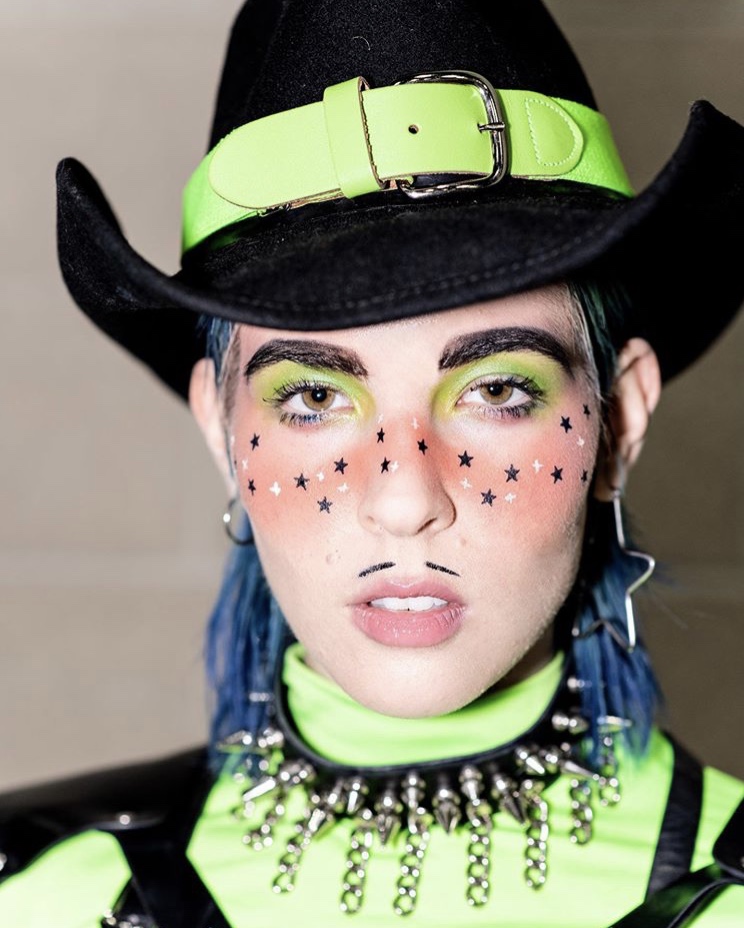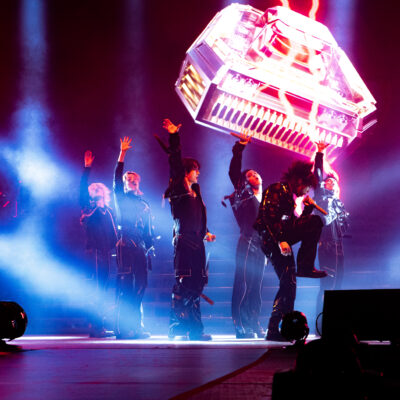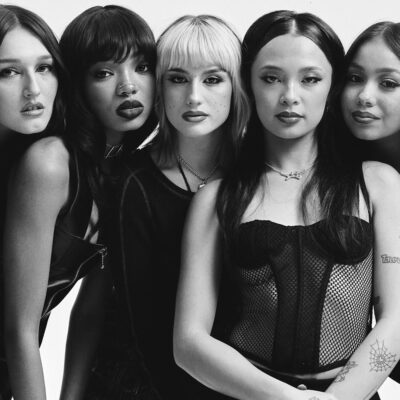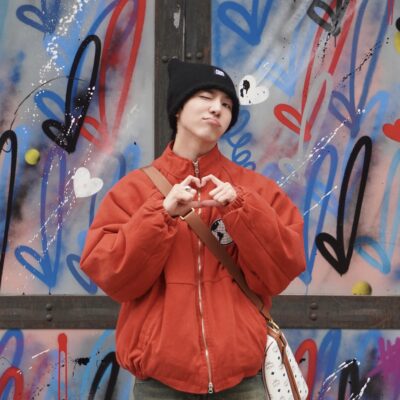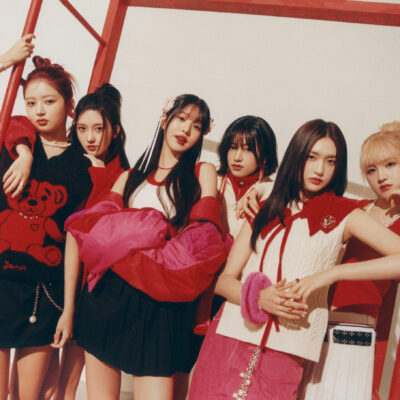Photo: Deonté Lee
Dorian Electra is an LA based pop artist. After getting their start in the philosophical music sphere, they were catapulted into the indie-pop spotlight with a feature on Charli XCX’s acclaimed ‘Pop 2’ mixtape. Their current music is a compelling exploration of gender and identity through a flamboyant, pop context. With a booked-and-busy live schedule and an unparalleled attention to visual detail, Dorian has garnered a reputation as one of the hardest-working artists in the indie-pop world.
What was your journey like from economic/philosophical bops to your music in its current form?
I started out making educational music videos. It would be like, “I have a book report due for school.” And then we could do any kind of project we wanted. And I’d always choose to do a song and music video. And I really liked processing information in that way and turning it into something that was catchy or memorable, or trying to anyway. I was doing that and then I had a couple videos that kind of got a lot of views within those spheres. And then I knew somebody who worked at Refinery29, and then they were like “we should bring on Dorian and their team to do an educational music video about sex-ed.” That was so awesome because I was really interested in that and the history of sexuality and gender. So we did a music video about the history of the clitoris and we worked on it with Weston Allen and Mood Killer. And that was in 2016.
Then I did a whole series including a video about the history of drag that included all these Chicago drag queens and performers. And then I started exploring my own gender identity a lot through researching the more intellectual, historical side, but then also just being involved with the community and seeing how people were using they/them pronouns and identifying as non binary, non binary and trans, and trans, and just being in that community and feeling like I could be free to explore myself and everything. That’s kind of how I made the transition to the kind of music that I’m making today.
A lot of pop fans first took notice of you through “Femmebot” and your ongoing collaborations with Charli XCX, how would you describe this creative relationship?
I love Charli. She’s amazing and really pushing the boundaries of pop music. And also, with all her collaborations, she’s creating such an amazing space for others within pop music to push those boundaries and is lifting up others who are smaller names. I’m so grateful to all of the fans that I’ve met and made through her, especially seeing that her fan base is so queer is really cool. And seeing the connection between this great queer community and experimental pop music, where it’s self-aware and challenging the normal boundaries of pop music in a way that feels like how queerness challenges the status quo of other social norms. It has this kind of camp quality and more whimsical self awareness to it, but also being super sincere and serious. And that’s how I interpret her music, with the extreme autotune and other elements that are turned up to the extreme that are normal facets of pop music but turned up to 11. I think that she’s doing really cool stuff with that.
You’ve already played a bunch of shows with her and are about to head out on the road opening for the Charli tour. How has that been?
Doing all the shows and stuff with her too has been amazing. We collaborated on curating a whole bunch of after parties and stuff. We’d be like, “okay, great we’re in Atlanta, who can we get that’s making cool, interesting pop music there?” And then also get drag performers and incorporate them. She’s so down to earth and so connected to her fans in a way that is really special. And it’s been really cool for me to see that. It’s something that I’ve always been trying to model myself after.
Your debut album, Flamboyant, is set to come out this week (7/17/19), how would you describe the vibe and sound of the album?
I would say that the album draws a lot of sounds from everything from Baroque music- like a lot of harps and chords- to heavy metal with guitars and futuristic metallic drums. And kind of a blend of everything that I like together. Especially taking religious choral music and then putting that into an experimental pop context, for me is a really interesting way to play with tradition in music, as well as making something that’s fun and instantly appealing to anybody in the club.
Release methods are getting less and less straightforward. Why did it feel like the right time to drop a full album rather than keep releasing singles?
I’ve been putting out singles with videos forever, and I’ve never even put out any music without a video really. Because for me, it’s always been about the visual element. But I really wanted to make a statement piece that was about the music and just tell the story through the sound. And I feel like with all the producers that I worked with, we were able to try to craft my sound musically, because a lot of my songs have been so different. We went to Las Vegas and did this writing camp with me, Dylan Brady, Umru, Social Chair, ABSRDST, Bonnie McKee, Mood Killer, and Weston Allen. I’ve also been working with Robokid. We just went through a lot of different things and was like, “this really feels like me or this doesn’t feel much like me,” until we started to find consistent themes like “oh, this would be a very Dorian, Flamboyant album, type sound,” until we had this sonic language and it just felt like something that I could express myself through the sound as much as I could through the visuals.
All of your music videos are always so well done and your live performances deliver dancers, costumes and choreo. With independent artists, visuals are sometimes a last thought. What inspires your attention to visual detail?
For me when I’m thinking of the song concept, I’m usually thinking of the visual that accompanies it. Especially for “Man to Man,” just the title alone already brought up a color scheme. I was like “it would be great if it was red and blue, because those colors are usually like pitted against each other.” We got these medieval knights but then you also have this 80s Michael Jackson Bad, “Beat It” style, fighting in the street kind of music video vibe. I just think in terms of the visuals and I also think in terms of the outfit. I’m thinking about, “what am I going to wear?” And even like, “how am I going to move my body?” or like, “how am I gonna perform this?”
How important is collaboration to your creative process?
I’m so lucky that I have such an amazing team that I work so closely with, like my partner and my best friend Weston Allen and Mood Killer. We have been making videos together since I met Mood Killer in 2009 at this summer filmmaker high school program. And then we met Weston in like 2012 or 2013. And we’ve all been working together ever since then, so we’ve done so many videos together. We’re all perfectionists when it comes to lighting, costuming, editing, and like everything. I think we all really push each other to take it to the next step. So even though we don’t have a lot of money to make these things, we just use our skills individually to help each other. Whether it’s a music video for Mood Killer’s project, Weston’s project or my project, we’re working together as a collective to make those possible.
When asked about their creative relationship, Mood Killer tells us, “My favorite part about working with Dorian is the limitless creativity and positivity that they inspire! I’m so lucky to collaborate with them constantly and for so long. They and Weston Allen are the the best people I know to brainstorm with, plan, execute and have fun while doing it! We share ideals, aesthetics, morals, and a work ethic and I’m so inspired by their work!”
You also just released a new single called “Daddy Like.” Lately there’s this awesome trend of repurposing the term Daddy into something empowering. What was the inspiration behind this track?
It was interesting, because usually, the initial inspiration for my track has some deeper story. But initially, we were at the writing camp in Vegas and Dylan Brady played all the tracks that he’d been working on over the past couple hours for us to hear. And we were going through them and then I heard that one and I was like, “that’s really good, daddy like!” and then we were all like, “that should be the name of the song!” And I generally don’t improvise but I got up and improvised the chorus. Then Mood Killer, Bonnie McKee and ABSRDST helped fill in the verses, giving it some grounding in the sugar daddy narrative.
We love the song. We want a sugar daddy now!
The thing is so many queer artists and people that I know, support their art through sex work. And it’s not something that’s talked about. It’s not something that’s seen as socially acceptable, but I know a lot of people who it totally influences their work. And I just have so much respect for people that do sex work. I didn’t have a sugar daddy situation, but I did work in a strip club in Chicago in like 2015. I was using that money to just live on but then also support this web series that Weston and I were doing.
What drives you to make your non-binary identity such an integral part of your work?
It’s something that’s really important to me, because I wish that when I was younger, I had people to look up to that were non-binary. I’m also very grateful for the people that I did have in my life to look up to that were like…I guess at the time the term we would have used is androgynous, like all the rock stars and people like David Bowie, and I was obsessed with this band, The Horrors, back in the day.
Knowing how much of an impact that had on me at a really young age, especially with kids today, things are changing so much. And I think it’s important to recognize that whatever you are putting out there into the world, there are kids that are eating that up and making that a part of themselves. And I just think all artists should be aware of how their work is impacting others. And you don’t have to be a perfect role model or whatever, but I think having an awareness of others and the impact of your work is important.
There are some non-binary artists and public figures that are in the mainstream but a lot of times their identity is mostly just discussed in interviews. What brings it to the forefront of your musical identity?
In my music I have the freedom to explore that. I’m very lucky to get to dictate exactly what I talk about and how I present myself. And being a totally independent artist, I don’t have anybody telling me, “that’s not going to sell or like, you should tone that down,” and that’s what I really appreciate. That’s my freedom as an artist, even though it’s hard to do everything yourself in that way too.
If people follow you on socials, they can see that you’re always either hosting a party or performing at someone else’s. Does being so active in nightlife influence your work?
It definitely does. Actually, I was thinking about this the other day. It’s a weird feeling. You get up in the morning, you’re going to work which is going into the studio or whatever. And it’s really hard. You’re like, “I want to try to make a song people are gonna want to get drunk too, or if not drunk, just party hard,” and you’re trying to get into that mindset but it’s a work mindset too. You’re kind of trying to create for this specific vibe, not that all my music is like that, but when you’re trying to make a song for the clubs and stuff it’s a funny thing where some people do turn up in the studio but I’m so not like that. We’re working in the studio. I’m very very focused and so it’s kind of funny trying to recreate that vibe.
But nightlife has definitely influenced my whole gender identity too. I don’t even put the mustache on during the day, but if I’m going out at night, I’m always going to put it on. So it’s like I’m my most “myself” when it’s nighttime and I’m at the club, because that’s when I can dress the most flamboyantly and not be looked at in an annoying way. Nightlife is a huge part of my identity and my work.
Lately, people have been talking a lot about Rainbow capitalism around pride. You just played Go West Fest with Troye and Charli, what was that experience like playing a truly queer oriented pride fest?
That was so awesome. It was such an amazing lineup that I was so honored to have had a hand in curating and being able to bring on Pussy Riot and Quay Dash who are two of my favorite artists. I toured with Pussy Riot and we just did a music video for them. And just having all of those artists together with somebody like Troye, who is an amazing bridge to the mainstream world, felt really powerful.
I think that when it comes to the corporate side of it, it’s complex, because a lot of times that’s how artists get paid. I see it as the best thing in the intermediary. What we can do now is try to get that money but give it to the folks that deserve it and need it and should be benefiting from it. It’s not great when we feel like the queer culture is being used to sell a product, but just facing the reality of it that it can be used for good if you have people that are directing it in correct ways.
What’s Dorian Electra’s overall mission statement?
I’m Flamboyant. I go all the way!
Stream Dorian Electra and be on the lookout for their debut album, ‘Flamboyant‘ out July 17th!

